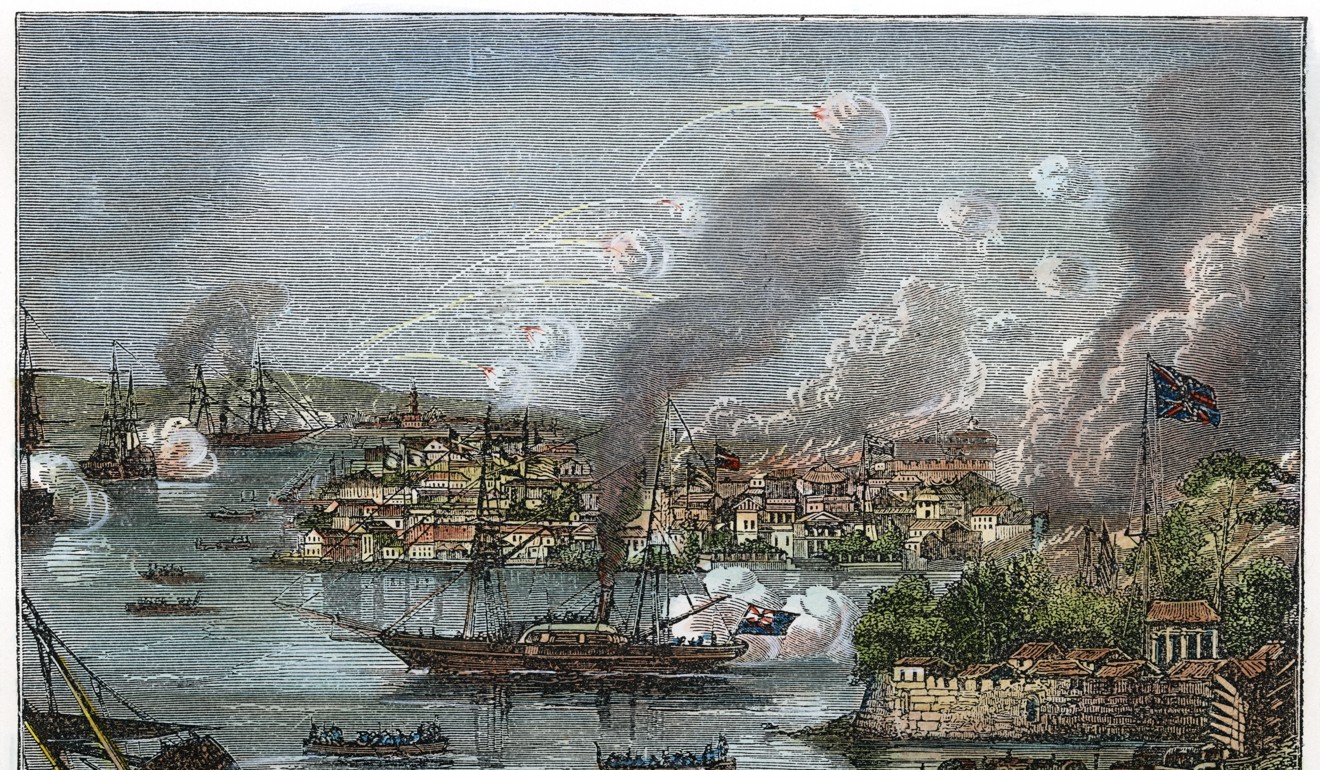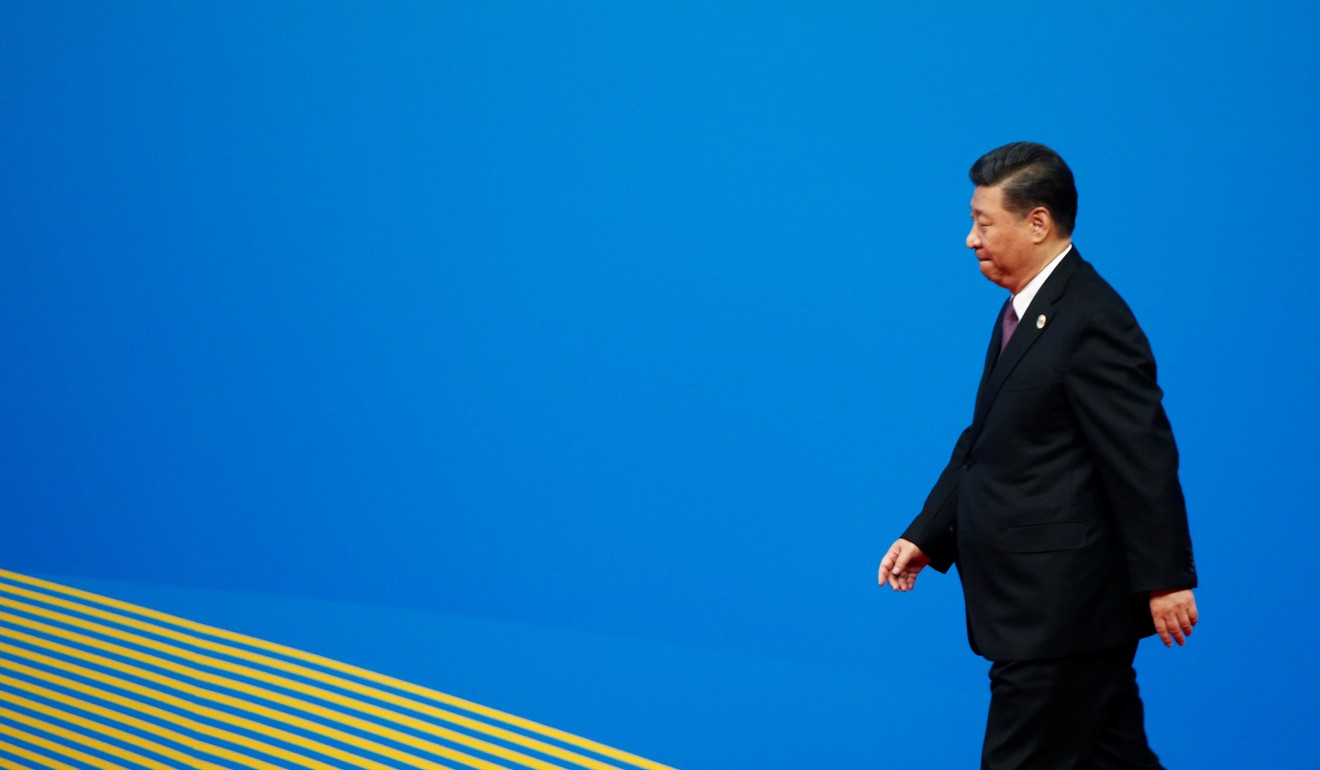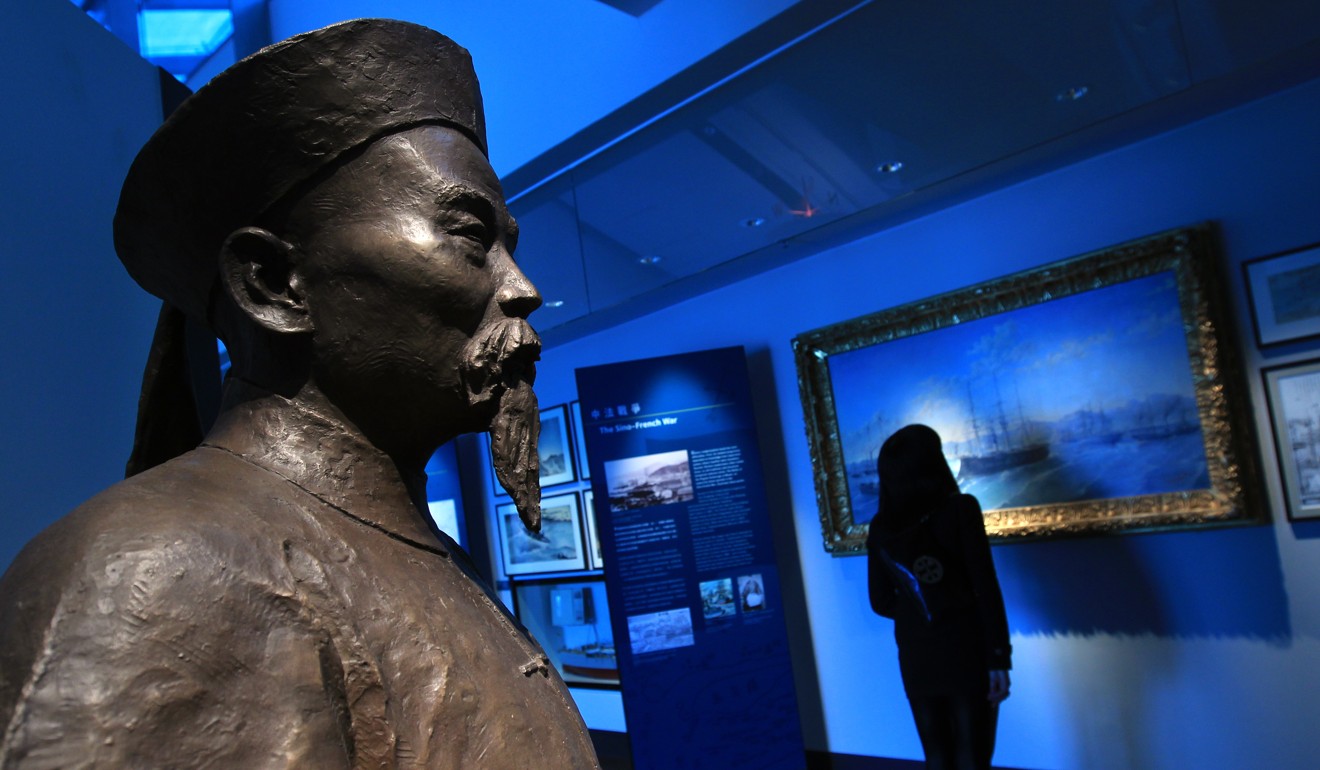Here is an excellent op/ed by Leslie Fong former editor of Straits Time. The US completely misjudge the historic burden of China Xi just cannot give in to those outrageous demand. It will tantamount to surrendering Chinese sovereignty and their right for better future No sane leader will accept that . Least of all Xi who has strong sense of history and China's place in the world.
China will fight this trade war to bitter end!. In hindsight his early purge of his detractor now can be seen as preparation for this trade war To unite the whole administration and military behind him
Asian Angle by Leslie Fong
Trump’s biggest mistake in US-China trade war: not realising the Chinese will never genuflect again
- China’s collective memory of a century of humiliation by foreign powers, beginning with the First Opium War, has steeled its resolve
- American politicians just do not understand the power of national self-esteem that underpins China’s resilience, writes Leslie Fong
Published: 11:30am, 1 Jun, 2019
?
I would argue that it is their collective memory of the century of humiliation by foreign powers that began with the First Opium War (1839-1842), a period of unforgettable injury to national pride best captured in that infamous sign “Dogs and Chinese not allowed” which was hung at the entrance of a park in the so-called British concession inside Shanghai.
American politicians who think of relations between nations only in terms of transactions and deal-making just do not understand the power of national self-esteem that underpins China’s resilience – or the strength that the Chinese can draw from the depths of their soul.
former prime minister Kevin Rudd does, and in a commentary published in
The New York Times last week, he argued that America’s disregard for Chinese nationalist sentiments had all but closed any window for a speedy resolution of differences between the two countries.
Perhaps some of the hawks in the American establishment do get it, but just do not care. Doubtless, they believe America might will prevail, as it seems to have over the past few decades when the US rode roughshod over other countries.
A 19th century wood engraving showing the bombardment of Canton, China, by the British fleet in 1841 during the First Opium War. Photo: Alamy
kept turning the screws, only to find that a people who have stood up at long last after being on their knees for so long are determined not to genuflect again – ever. It will understand soon enough that in the face of even the most intense bullying, the Chinese will not roll over like the Canadians or the Japanese.
has served only to rip open scars in the Chinese psyche that have barely healed. The Chinese people will be damned if they allow a replay of that traumatic period of their history when, among other indignities, their government had to yield the sovereign right to collect custom duty to foreigners.
China’s leaders know full well that the so-called trade war is not just about buying more soybeans or Boeing aircraft, or agreeing to a trading concession here and a compliance there. The US is demanding nothing less than having China submit to its will and
and industries. Beijing sees that as a bid to colonise China by another name and has called it out as such through its media.
China’s leaders will fight this full-frontal assault on its sovereignty – to the bitter end, if need be. They have little choice. They know capitulation will undermine their rule. Worse, history will judge them harshly as sinners who have betrayed their nation just as it is poised to resume its rightful place in the world. It is hard to see how
and his senior colleagues, who see the fulfilment of China’s destiny as resting squarely on their shoulders, will allow such a damning verdict to be laid at their door.
They are not surprised that the West, especially the US, has acted, finally and with a vengeance, on its perception of China’s rise as a grave threat to its dominance of the world order. For the better part of two decades, they have been at pains to tell the world that China is not out to challenge anyone, and hope they will be believed. It is inconceivable that they have also not prepared for the worst.
Well, the worst has arrived – as proponents of American hegemony have decided that it is now or never to take China down while it is still vulnerable. And in the present occupant of the White House they have found their useful idiot, to use the Leninist term, to lead the battering, and take the blame if all hell breaks loose.
Proponents of American hegemony have decided that it is now or never to take China down.
So what gives when the seemingly irresistible meets the immovable?
For the Americans, it is either doubling down or coming around, however reluctantly, to accepting that China will never cave in and that working out an arrangement in which both countries can cooperate as well as compete without disrupting the entire global economy and order is the next best option.
On the Chinese side, I think they think they can wait if they cannot find a compromise they can live with. Meanwhile, they will continue to look into history, if they have not already done so, for pointers to guide their future action.
Apart from the First and Second Opium Wars – from which the chief lesson is that the weak must suffer what they must – there is also much to learn from the first Sino-Japanese war (July 1894 to April 1895). In that encounter, China under the Qing dynasty fought Japan after the latter invaded Korea, at that time a Chinese protectorate.
Despite numerical superiority in terms of fighting men and ships, China’s Beiyang Fleet was trounced. China ended up suing for peace and in the 1895 Treaty of Shimonoseki, ceded Taiwan and Penghu Island to Japan in perpetuity.
While the disputed
were not named in that treaty, Japan also took the opportunity to seize and annex them as part of its Okinawa Prefecture.
In addition, China had to pay 13,600 tonnes of silver to Japan as war reparations, equivalent to 4.6 times the Japanese government’s total annual revenue at that time.
Chinese President Xi Jinping has marshalled a united front to stave off any Western attempt at disrupting and containing China’s inexorable rise. Photo: Reuters
Share:
The first lesson from this debacle is that an essentially agricultural economy, as China was at the time, could never match a rapidly industrialising state like
which had chosen to learn from the West after the Meiji Restoration in 1868.
While China today is no longer a weak agricultural country, what Beijing must think very carefully about is whether it has built up sufficient
to withstand a long, drawn-out cold war with the US and maybe large parts of the West as well. This is how it will calibrate the scale and intensity of the Chinese tit for the American tat.
The second lesson is that China cannot hope to take on an encroaching foreign power if its own government is divided and corrupt, as the Qing court had long been at the time. Li Hongzhang, the leading official charged with warding off the Japanese, did not have the support of the still-influential Manchu princes as well as other officials, who carried on in their corrupt ways as though the war had nothing to do with them.
A statue of Li Hongzhang, a Chinese politician of the late Qing dynasty, at the Hong Kong Maritime Museum. Photo: Jonathan Wong



